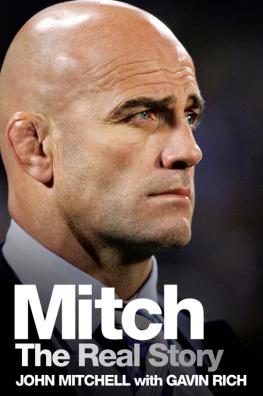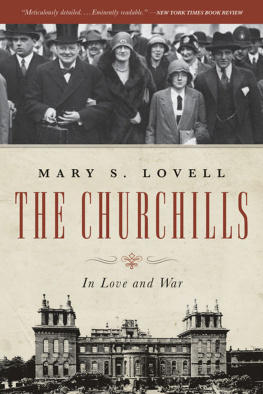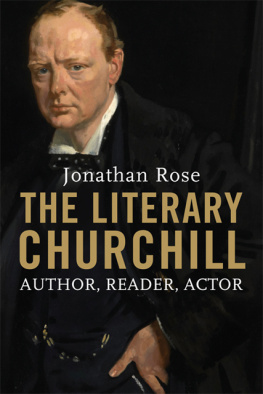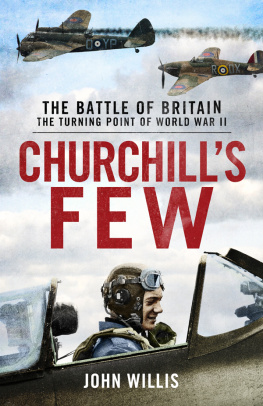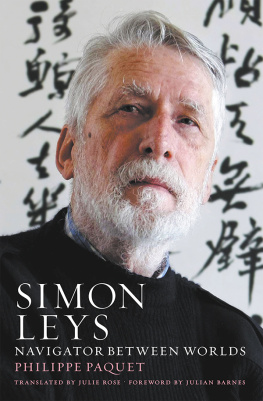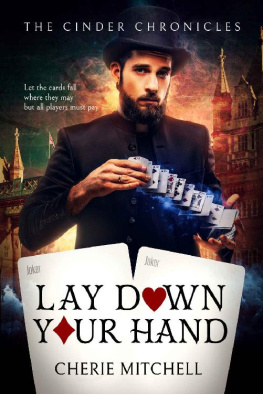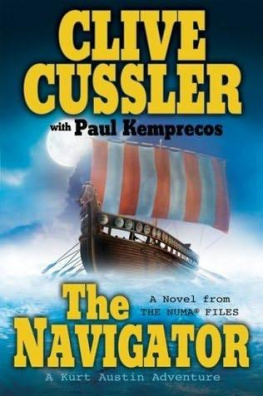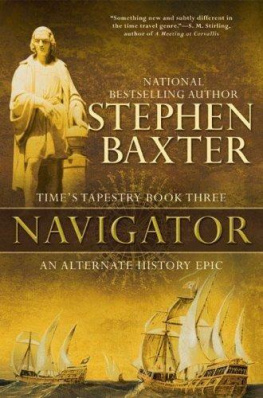Published by
Grub Street
4 Rainham Close
London
SW11 6SS
Copyright Grub Street 2010
Copyright text Air Commodore John Mitchell LVO, DFC, AFC and Sean Feast 2010
British Library Cataloguing in Publication Data
Mitchell, John.
Churchills navigator.
1. Mitchell, John. 2. Flight navigators, MilitaryGreat BritainBiography. 3. World War, 19391945Aerial operations, British. 4. World War, 19391945Personal narratives, British. 5. Churchill, Winston, 18741965Travel.
I. Title II. Feast, Sean.
940.5'44'941'092-dc22
ISBN-13: 9781906502744
eISBN 978-1-908117-94-6
All rights reserved. No part of this publication may be reproduced, stored in a retrieval system, or transmitted in any form or by any means electronic, mechanical, photocopying, recording or otherwise, without the prior permission of the copyright owner.
Cover design and formatting by Sarah Driver
Edited by Sophie Campbell
Printed and bound by MPG Ltd, Bodmin, Cornwall
Grub Street Publishing only uses
FSC (Forest Stewardship Council) paper for its books.
ACKNOWLEDGMENTS
My first thanks go to the Rankin (and extended) family, and especially Hugo and his mother, Anna. Without this connection, and Annas habit of buying my books, I would never have met John, and had the very great privilege of helping to write his story. Both at Micklefield Hall, and in Lymington, I was always met with great kindness, which made the task of getting Johns thoughts and memories down on paper such a tremendous pleasure.
Correspondence with Wing Commander Jeff Jefford of the RAF Historical Society gave me a steer on style and tone, and I am grateful for his comments. The notes of David Walters, who has conducted much research into his fathers own experiences with 58 Squadron in 1940/41, were also useful in conveying the atmosphere of Linton in those early days of the bomber war.
My work colleagues Iona, Alison and Alex have now mastered the art of feigning interest in my extra curricula activities, but I am grateful for their support, nonetheless. I thank also Charlie, Paul and Mike for their inspiration, and their (occasionally) sensible input. Perhaps next time, Paul!
To Grub Street I owe an enormous debt of gratitude once again. This is now our fourth collaboration, and the fun and excitement of working with John and his team is as great today as it has always been. One day I will run out of ideas, but hopefully not quite yet.
A word of thanks of course goes to the genius and financial controller that is my wife, Elaine, and my two boys Matt and JamesJames in particular for choosing his friends so wisely. And Matt-Facebook will never catch on you know!
And finally I would just like to record the passing of my father, Don Feast, during the preparation of this book. A familiar figure at previous book launches, and a great supporter of my work, he served underground at Kelvedon Hatch during the Cold War, watching the skies for Russian invaders. More recently he was a key figure along with my mother in organising a series of extremely successful RAF reunions for all those who served down the hole. They miss him, and I do too. Per Ardua Ad Astra.
Sean Feast, Sarratt, June 2010
PROLOGUE
My pilot was shouting at me. Indeed he was swearing. Squadron Leader John Bartlett, B Flight commander, 58 Squadron was a dour man of few words, but this evening he was making an exception. He had quite a bit to say, largely profanities and most of them directed at me.
The night of June 30, 1940 was dark, very dark in fact, and we had already gone around twice looking for the target. Our Whitley V (coded P4951)one of the RAFs laughingly named secret weapons in the war against Germanyhad seen us safely from our base in Linton-on-Ouse to Dsseldorf. Now I was peering down into the gloom, trying to identify the Reisholz oil refinery, our primary target. We were one of eight 58 Squadron aircraft operating that night, but had seen nothing of our colleagues since taking off at 21.15 on that summers evening.
I wondered if I would ever find the target. And I wondered how, as a twenty-one-year-old pilot officer in the RAF Volunteer Reserve (RAFVR) I had come to be in this bomber, on this night, with less than ten hours night-time navigational experience to my namemy first operational sortie.
CHAPTER ONE
FINDING MY WAY
As a young man I had lived a very conventional, even ordinary, existence. Born in Sanderstead in South Croydon on November 12, 1918, the day after the Armistice, with a father who had not been subjected to the horrors of trench warfare on account of being too old, having flat feet and working in what was a relatively reserved occupation. He was a civil servant, and by all accounts quite a senior one, working in the Inland Revenue.
I was one of four, with two sisters and a younger brother. At the age of twelve I passed the school entrance exam for Whitgift Grammar, and was excited about going. My father, in his wisdom, decided instead to pack me off to his old boarding school, Bancrofts in Woodford Wells, where I was to spend a thoroughly miserable first few years. In fairness I dont think it was Bancrofts fault as such, but rather that I hated the whole idea of boarding schools at that time. It was ironic that my father, who I actually got on quite well with, decided to send me away, and that my brother, with whom my father struggled, was allowed to stay at Whitgift.
Bancrofts was typical of the period: masters ruled with an iron discipline, and we had our fair share of fagging (junior boys serving their seniors) and bullying. The buildings were of an imposing redbrick, designed by Arthur Blomfield, and the grounds of more than four acres were similarly impressive. The school was founded in 1737 following the death of its founder, Francis Bancroft, who left a large sum of money to the Worshipful Company of Drapers (which continues to act as a trustee for the school). Alumni included such exalted old boys as the famous geographer and geologist Sir Dudley Stamp; Sir Kenneth Peppiatt, the chief cashier of the Bank of England; Tommy Hampson who won a gold at the 1932 summer Olympics; and Lieutenant Colonel Augustus Newman who led the military forces as part of the famous St Nazaire raid and won the Victoria Cross as a result.
Later, perhaps, I would learn to understand the benefits of my school days, particularly having chosen a career in the services. The ability, for example, to get on with people in trying circumstances never left me.
My time at Bancrofts was relatively unremarkable. I played 1st XV rugby, and enjoyed 2nd XI cricket, but couldnt pretend to be very good at either. In terms of schoolwork, I did have a natural aptitude towards maths and the sciences, and even managed a distinction in physics. This was to be of significant help to me in later life.
My lack of serious academic promise, however, was of concern to my father. Perhaps because of this, and no doubt the practical consideration of saving on school fees, I was told that university was not an option and that I would leave without completing my second year in the sixth form. This meant I never had the opportunity of taking my Highers, or the chance of a scholarship that mayor may nothave been in my reach. And so, a little earlier than I had planned, I found myself considering my future.





